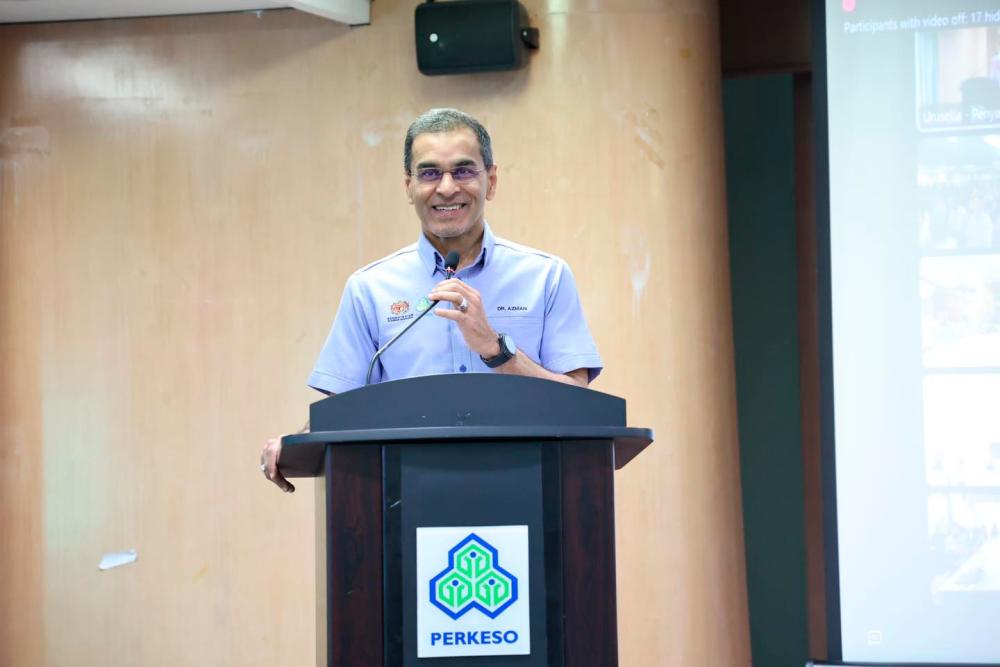PETALING JAYA: With the National Kidney Foundation forecasting that the number of kidney failure patients will reach 106,000 by 2040, the Social Security Organisation (Socso) has embarked on a campaign to discourage excessive sugar consumption.
Its CEO Datuk Sri Dr Mohammed Azman Aziz Mohammed said it launched the “Tolak Gula” campaign as diabetes is among the major contributors of kidney failure.
“We launched the campaign on March 11 to address the root cause of chronic kidney disease and proactively educate the public to reduce sugar intake.”
He said raising awareness about the negative effects of excessive sugar consumption and advocating healthier lifestyle choices are initiatives designed to protect public health while improving productivity and quality of life.
The Malaysian Dialysis and Transplant Registry said the total number of dialysis patients in 2022 was 51,256 while only four out of some 1,000 dialysis patients received a kidney transplant in 2022.
Mohammed Azman said due to the low number of kidney donors, dialysis remains the primary mode of treatment, with some 50% of patients being funded by the government and another 25% by Socso.
However, he said over 20% of dialysis patients still need to fork out their own money for treatment, which is estimated to cost RM65,520 each year per person.
“Socso allocated RM330 million in 2023 to support dialysis programmes for our contributors suffering from diabetes-related issues. This is a lot of money and it could be better used for the benefit of our members if we reduce the number of diabetics in the country.
“This is why our ‘Tolak Gula’ campaign is so important and relevant.”
Mohammed Azman said Socso implemented its Health Screening Programme 11 years ago and its latest statistics revealed between 2013 and 2021, 10% of workers aged over 40 were diabetics.
He said the figure surged to 14% in 2022 and reached 20% by the end of 2023.
“This further reinforces the fact that our campaign is relevant and we hope Malaysians will take heed and reduce sugar consumption.”
Universiti Malaysia Terengganu Food Science and Technology senior lecturer Assoc Prof Dr Mohamad Khairi Mohd Zainol said one in five adults in Malaysia suffers from diabetes due to poor diet.
“About 3.9 million adults aged 18 and above are affected by diabetes. Additionally, we estimate the number of diabetics will increase to about seven million by 2025.
“High sugar consumption, blood pressure and cholesterol are major risk factors for cardiovascular diseases, which are the leading causes of death in Malaysia.”
Mohamad Khairi said healthcare professionals play a crucial role in supporting Socso’s campaign by educating the public about the long-term effects of excessive sugar consumption on their well-being.
“Healthcare professionals should be involved in preventive education and early detection efforts through regular health screening to identify those at risk of diabetes and obesity.
“This will encourage them to adopt healthier lifestyles and reduce sugar intake, ultimately contributing to improved health outcomes and disease prevention,” he said, adding that with Hari Raya around the corner, reinforcing the need to reduce sugar consumption is critical.
He also said it is important to collect data from time to time to analyse the success of Socso’s campaign so that changes in sugar consumption patterns and public awareness of diabetes can be assessed.
“By employing various strategic measures to collect and maintain data, we can assess the effectiveness of the campaign and its progress towards achieving its goals over time.”
He said Socso’s campaign would enable more people to take proactive measures to prevent and manage diabetes, kidney failure and other chronic diseases.









